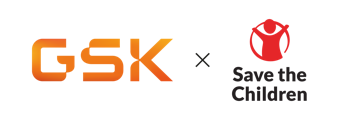GSK and Save the Children: A Partnership for Immunisation
By Alhadi Osman (Senior Health Policy Advisor, Save the Children UK)
Published 25/06/2025
Today's challenging context of conflict, climate change, financial and economic pressures poses significant threats to routine immunisation programmes operating in fragile health systems in low and middle-income countries (LMICs). Navigating these challenges requires coordinated multi-partner efforts across public, private, and multilateral sectors.
Leveraging Public Private Partnerships (PPPs) is one proven way to help tackle these challenges, by delivering primary healthcare services and supporting local health systems, and the longstanding partnership between GSK and Save the Children exemplifies this approach. With the partnership now in its 12th year, this current phase focuses on Zero Dose and Under Immunised Children.
Addressing Critical Immunisation Gaps
Despite progress in global vaccination coverage over past decades, recent data shows concerning plateaus in immunisation rates. Globally there were approximately 14.5 million zero dose children (ZDC) – those who did not receive any routine vaccines – in 2023 around the globe. Furthermore, global immunisation coverage has stalled leaving 2.7 million additional children un- and under-vaccinated compared to pre COVID-19 pandemic levels. The challenges countries with the most zero dose children face are often large birth cohorts (for example India, Nigeria, Ethiopia), weak health systems, or both. In addition, countries in fragile and humanitarian settings such as Sudan, Yemen, Afghanistan are also experiencing low immunisation rates. GSK and Save the Children’s partnership is aiming to help respond to these challenges through targeted interventions in Nigeria and Ethiopia where there are approximately 3.3 million ZDC.
GSK and Save the Children: a Partnership for Equity
The effectiveness of public private partnerships for international development lies in leveraging the comparative advantage of each stakeholder. This model has been successfully demonstrated by Gavi, the Vaccine Alliance, bringing together public, private, and civil society partners to improve access to immunisation in LMICs.
GSK and Save the Children’s immunisation programme builds on over a decade of sector-leading partnership between a non-governmental organisation (NGO) and a private sector entity. The focus of the programme is on Nigeria and Ethiopia and aims to help increase and sustain the use of vaccine services in target areas within ZDC communities. This will be achieved via three main arms below in figure 1.


